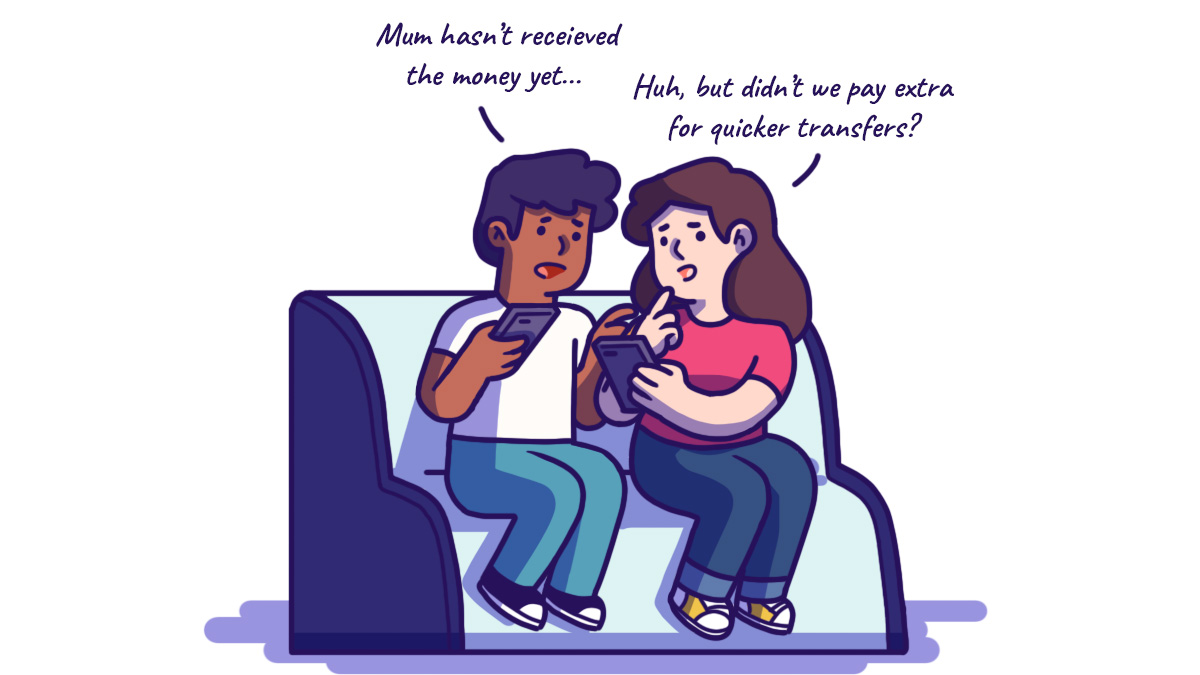This article is sponsored by HSBC Personal Banking for the HSBC Everyday Global Account
Living and working abroad is, no doubt, one of the coolest things anyone can do. After all, experiencing a whole new way of living in a different part of the world while still raking in money sounds like a dream for many people.Except it might not be, if you consider all the things that go into planning such a huge move. Uprooting your life to move to another country isn’t just an emotional and logistical undertaking, there are the financial aspects to consider too.Even after the initial move, expats face unique challenges that locals in their own country don’t such as adapting to the local financial systems, work culture, and laws of the land. It doesn’t matter where you go—these are hurdles that aren’t easy to sidestep.
So, we took to asking a few expats who have been in Singapore for some years now – to talk about what it's like being a global citizen and one of the biggest financial and logistical headaches they face as an expat in Singapore.
Keeping track of finances can be a challenge
A common pain point among the expats we spoke to centred around the extra effort needed to manage their money — specifically, the issues of overseas fund transfers and tracking exchange rates, as well as managing foreign assets.
Nicole is a 30-year-old account manager from Malaysia. While she adjusted quickly to the way of life and culture here in Singapore, money matters were something else entirely.
“I send money back home to family, so there are things to consider like exchange rates and FX fees,” she said. “I have to time the transfers correctly, especially when I’m paying things off like loans. Those transfers will take a couple of days, typically, before the money gets through.”
As a result, Nicole plans her transfers to make sure she’s on time with her payments. She sets reminders on her phone so she doesn’t forget to wire money overseas on time. She describes the process as "tricky" since she has to balance the urgency of the transfer and mind the fees.
The long road littered with inconvenience
Rosselle and her husband, both from the Philippines, can relate to Nicole’s problem. Having been in Singapore for close to eight years, they’ve got a lot on their plate: both work full-time jobs in Singapore, and co-manage a local F&B business back home in the Philippines.
Naturally, living in Singapore while managing a business back home meant that Roselle needed to work with two currencies – SGD and pesos – instead of one.
“We have to plan the best days to send funds back home, even if things may be urgent or emergencies happen,” Rosselle said. “We weren’t able to make money transfers immediately, or the next day. It involved a lot of communication with home as well, since we needed to tell our family how long they needed to wait before we could make the transfers, so they can adjust their expectations.”
It was a whole science on its own. They’d default to Sundays when the markets close because the rates would be more stable. “Bank processing would take another business day, converting our SGD to pesos,” she added.
The technological hurdle
Her husband brought up another point: Their hometown provinces didn’t always have ATMs for their family to access the money easily, even after they’ve wired the funds successfully.

Of course, not every expat will experience such an obstacle—it depends on which country you come from—but it was still a very real problem that Rosselle and her husband had to work around.
However, the proliferation of money transfer apps in Singapore recently helped ease Roselle’s remittance woes.
But figuring out which app was best proved to be a hassle at first. The requirements for getting an account involved a lot of administrative hustling and paperwork. They were also overwhelmed by the options available and spent months at a time trying out each app, to see which one suited their needs best.
While they still keep an eye on fluctuating exchange rates, the process has become more streamlined thanks to more advanced technology.
When it comes to money matters, preparation is everything
Keeping track of payments back home and managing multiple currencies are just two of the unique financial hurdles that expats such as Rosselle and Nicole have to deal with. When you add to that a whole host of other challenges, like adjusting to a foreign country’s way of life, figuring out how (or whether) to pay taxes in two countries, and where to keep their investments, suddenly, the idea of moving to another country and settling down there doesn’t seem quite so attractive anymore.
But Nicole offers a piece of advice: “You just have to do your research, plan in advance and make sure that you’re really prepared both financially and emotionally before making your move overseas”.
Preparation will help minimise the costs you’ll inevitably incur. Inflated exchange rates and foreign exchange fees may seem like a “small” expense, but they will add up over time if you choose to work abroad for the long term. That, and no one really has the time to mind fluctuating currency rates.
Content sponsored by HSBC Personal Banking
A message from our sponsor:
With the HSBC Everyday Global Account, you can go about your daily life with ease, whether it’s transferring money back home to friends and family or just using different currencies without fretting excessively over exchange rates.
You can send money faster internationally and fee-free* via
HSBC Global Money Transfers on the HSBC Singapore app. Plus, stretch your dollar by earning 1% cashback from your daily transactions and 1% p.a. bonus interest with the new HSBC Everyday+ rewards programme!
If you can manage your money all in one place and not have to crack your head over how to keep your finances in order, even while working abroad, then why wouldn't you?
Apply online for the HSBC Everyday Global Account and enjoy up to S$108 worth of welcome gifts and a S$50 Lazada voucher.
Terms and conditions apply. SGD deposits are insured up to S$75K by SDIC.
*Most transfers are fee-free but some intermediary banks may charge fees.
 Of course, not every expat will experience such an obstacle—it depends on which country you come from—but it was still a very real problem that Rosselle and her husband had to work around.
However, the proliferation of money transfer apps in Singapore recently helped ease Roselle’s remittance woes.
But figuring out which app was best proved to be a hassle at first. The requirements for getting an account involved a lot of administrative hustling and paperwork. They were also overwhelmed by the options available and spent months at a time trying out each app, to see which one suited their needs best.
While they still keep an eye on fluctuating exchange rates, the process has become more streamlined thanks to more advanced technology.
Of course, not every expat will experience such an obstacle—it depends on which country you come from—but it was still a very real problem that Rosselle and her husband had to work around.
However, the proliferation of money transfer apps in Singapore recently helped ease Roselle’s remittance woes.
But figuring out which app was best proved to be a hassle at first. The requirements for getting an account involved a lot of administrative hustling and paperwork. They were also overwhelmed by the options available and spent months at a time trying out each app, to see which one suited their needs best.
While they still keep an eye on fluctuating exchange rates, the process has become more streamlined thanks to more advanced technology.











